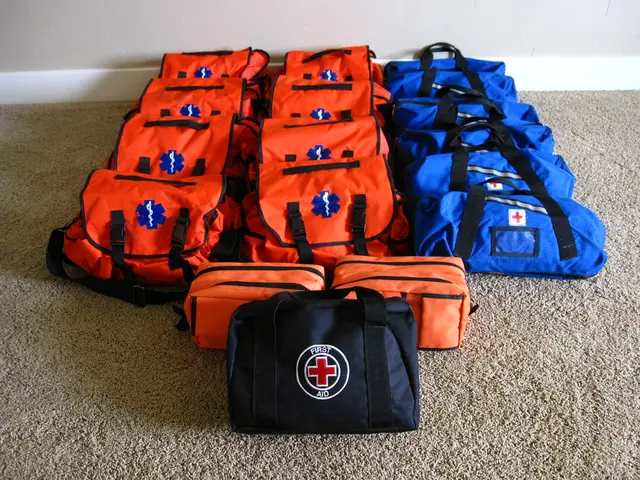Diagnostic Blood Tests for Colon Cancer: Outcomes, Following Actions, and Financial Implications
In the realm of colon cancer detection, blood tests play a significant role. These tests can help identify potential signs of the disease, but it's important to understand what they entail and their limitations.
The medical term for a reduction in healthy red blood cells is anemia. Anemia can occur in colon cancer patients due to prolonged tumor bleeding. Hemoglobin, a protein in red blood cells that helps transport oxygen, is used to diagnose anemia. According to the American Society of Hematology, a doctor will diagnose anemia if the hemoglobin level is less than 13.5 grams per deciliter (g/dL) for an adult male and less than 12 g/dL for an adult female.
Blood tests can also help detect certain substances, known as tumor markers, which may indicate colon cancer. One such marker is carcinoembryonic antigen (CEA). A higher level of CEA may indicate colon cancer, but other factors such as smoking can also cause elevated CEA. It's essential to note that while a high CEA level might suggest colon cancer, it's not definitive proof.
Doctors may also recommend liver enzyme tests to show how well the liver functions. Enzymes such as alanine transaminase, aspartate transaminase, alkaline phosphatase, gamma-glutamyl transferase, bilirubin, and albumin can help indicate possible liver issues. If these enzyme levels are abnormal, it may suggest that the cancer has spread to the liver.
It's crucial to remember that blood tests cannot diagnose colon cancer on their own. They can help detect abnormalities, such as low red blood cell counts or tumor markers, but additional tests, like a colonoscopy, may be necessary for a definitive diagnosis.
Before a blood test, people must follow a doctor's advice to prepare, which may or may not require fasting. During the test, a healthcare professional may prick a finger or insert a needle into a vein to collect a blood sample. After the test, some people may feel faint or dizzy. Drinking water before the test may help prevent this. Bruising or swelling around the area may occur after a blood test, but it will likely subside within a few days.
In the United States, Medicare and private health insurance may cover colorectal screening costs, but people may have to pay for diagnostic blood tests. Financial help for these costs is available from organisations like Facing Hereditary Cancer Empowered (FACE), Colorectal Cancer Alliance, Patient Advocate Foundation, and the Cancer Financial Assistance Coalition.
In conclusion, blood tests play a vital role in the early detection and monitoring of colon cancer. Understanding what these tests involve, their limitations, and how to prepare can help alleviate any anxieties surrounding them. As always, it's essential to consult with a healthcare professional for personalised advice and guidance.








